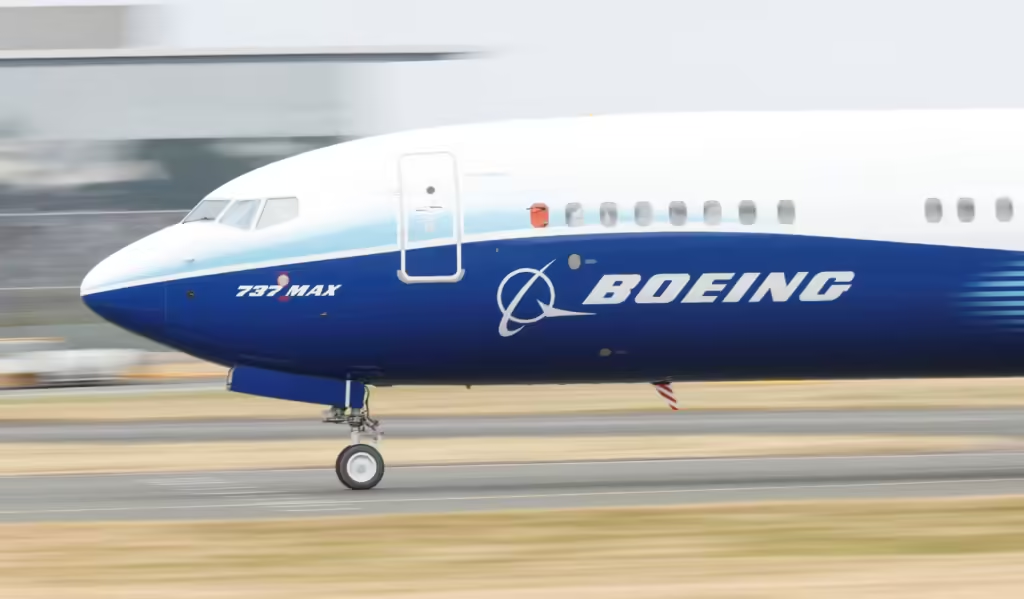Boeing to Face Enhanced FAA Oversight Amid Quality Concerns

Quick Take
- FAA to maintain increased scrutiny on Boeing following a 737 Max incident.
- More FAA inspectors to be stationed at Boeing and Spirit AeroSystems facilities.
- This enhanced oversight is set to continue indefinitely to ensure compliance and safety.
FAA Intensifies Oversight on Boeing After 737 Max Incident
In a move aimed at ensuring stringent quality control and safety standards, the Federal Aviation Administration (FAA) will sustain its heightened oversight of Boeing Co., a measure initiated after a significant incident involving the 737 Max earlier this year. This decision comes after a fuselage panel detached from a 737 Max in January, prompting the FAA to reevaluate its regulatory and oversight approaches towards the aviation giant.
FAA Administrator Michael Whitaker, in his prepared testimony for a Senate hearing, emphasized the necessity of this sustained scrutiny. The written statement, obtained by Bloomberg, outlines the agency’s commitment to place more inspectors at Boeing’s manufacturing sites, as well as at the facilities of Spirit AeroSystems Holdings Inc., a crucial supplier for Boeing.
Enhanced Real-Time Monitoring
The enhanced oversight includes real-time monitoring of Boeing’s quality control processes. By having a permanent presence at Boeing’s production facilities, FAA inspectors aim to catch potential issues early and ensure that manufacturing standards are consistently met. This proactive approach is designed to mitigate risks and prevent incidents similar to the one involving the 737 Max fuselage panel.
“The agency will continue to place more of its inspectors at Boeing’s facilities and those of key supplier Spirit AeroSystems Holdings Inc. for the foreseeable future,” Whitaker stated. This indicates a long-term commitment to rigorous oversight, reflecting the FAA’s focus on maintaining high safety standards across the aviation industry.
Permanent Changes to Industry Oversight
The incident with the 737 Max has led to broader implications for the aviation industry, prompting the FAA to implement permanent changes in its oversight practices. These changes are not just limited to Boeing but extend to other manufacturers as well, ensuring a uniform standard of safety and quality across the board.
Whitaker’s testimony highlights the FAA’s strategy to enhance oversight mechanisms, ensuring that regulatory frameworks evolve in response to emerging safety concerns. This includes more frequent and detailed inspections, closer collaboration with manufacturers, and leveraging advanced technologies for real-time monitoring.
Boeing’s Response and Industry Impact
Boeing, in response to the FAA’s increased scrutiny, has expressed its commitment to working closely with the agency to address any concerns and improve its quality control processes. The company acknowledges the importance of stringent safety measures and is likely to implement additional internal checks and balances to align with the FAA’s requirements.
This heightened scrutiny from the FAA is expected to influence the broader aviation industry. Other manufacturers and suppliers will likely adopt more rigorous quality control measures to avoid similar regulatory actions. The incident serves as a stark reminder of the critical importance of adhering to stringent safety standards in the aviation sector.
Ensuring Future Safety and Compliance
The FAA’s decision to maintain enhanced oversight over Boeing and its key suppliers underscores the agency’s dedication to ensuring the highest levels of safety and compliance in the aviation industry. This approach is particularly crucial in the wake of the 737 Max incidents, which have highlighted vulnerabilities in current manufacturing and quality control processes.
Moving forward, the FAA’s real-time monitoring and increased presence at production facilities are expected to play a pivotal role in preventing future incidents. By catching potential issues early, the agency aims to mitigate risks and enhance the overall safety of the aviation industry.
Conclusion
The FAA’s decision to sustain its heightened scrutiny of Boeing for the foreseeable future marks a significant step in ensuring aviation safety and quality control. This proactive approach, involving increased inspector presence and real-time monitoring, aims to address and prevent issues before they escalate into major incidents. As Boeing and other manufacturers adapt to these stringent oversight measures, the broader aviation industry is likely to see a positive shift towards more robust safety and compliance standards. The FAA’s commitment to rigorous oversight ensures that the lessons learned from the 737 Max incident will lead to long-term improvements in aviation safety.
4o



